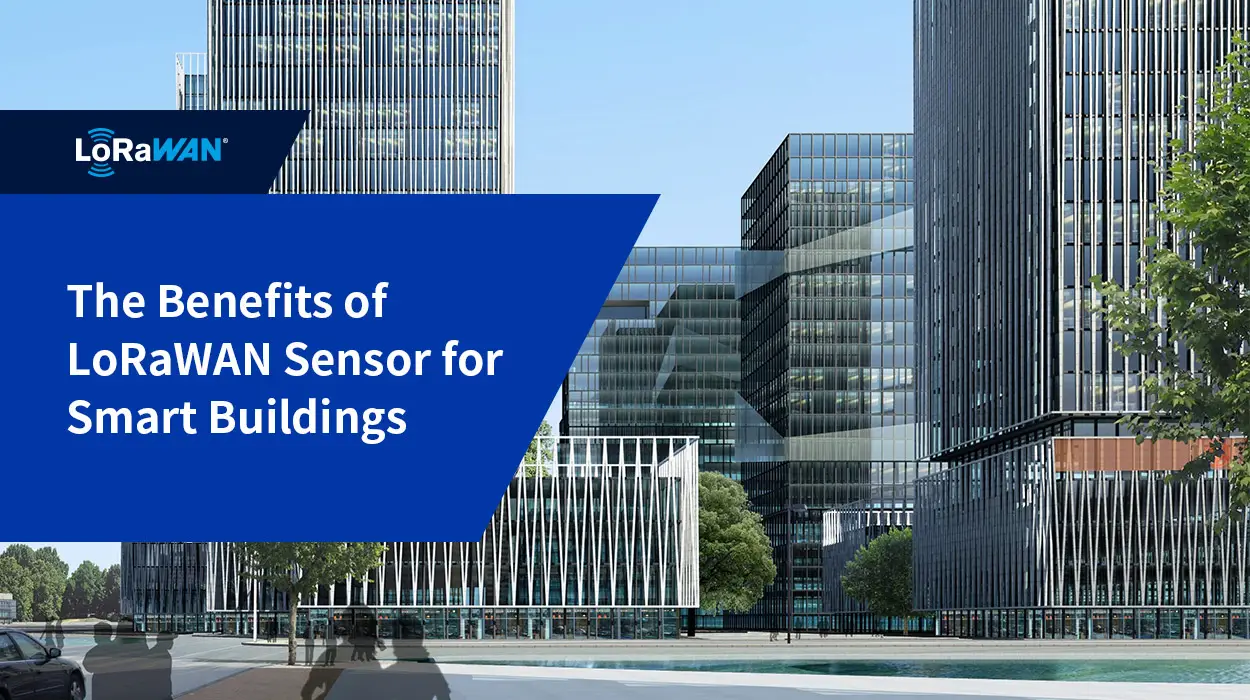As we all know, the Internet of Things has become an inevitable trend in the development of the Internet. These elements of IoT are also dramatically changing the way supply chains operate, as it plays an increasingly important role in new business processes. With the COVID-19 pandemic in particular manifesting severe inefficiencies and low visibility in supply chains, more than ever, businesses need to recognize and adapt to the transformational role of IoT and strive to derive more value from it. In this post, we will explore how LoRaWAN can benefit smart supply chain and logistics.
Introduction to smart supply chain and logistics
When it comes to a smart supply chain, pretty much people just think of its definition: the supply and demand relationship between upstream and downstream, achieving the perfect coordination of production, warehousing, distribution, transportation, retail, and other functions. But in fact, you can find logistics in the operation of the entire supply chain, even at a node. The role of IoT technology in the intelligent transformation and upgrading of supply chains is mainly reflected in the field of logistics.
In traditional logistic enterprises, the supply chain visibility is low, and neither the enterprises nor the customers can obtain relevant logistics information in time, and both of them are often in an information vacuum. Through the COVID-19 lockdowns, more and more enterprises realize the essential role of technology in improving the resilience and robustness of smart supply chain and logistics. Meanwhile, IoT has gradually become a game changer in unlocking true digital business potential and maximizing real-time logistics visibility.
Why is LoRa a trend in smart supply chain & logistics
The logistics industry often involves a very wide geographical scope, so low investment and long working life are the priorities when choosing a network. Ideal wireless connectivity should be affordable and secure, support great distances, and long battery life. Short-distance technologies like Zigbee, Bluetooth, and WiFi cannot meet these requirements, while cellular mobile network supports long distances, but the battery life is too short. Moreover, the cost of cellular data is very expensive, which is costly for the deployment of large-scale goods such as packing boxes on trucks.
LoRa has the advantages of long distance (up to 10 miles in rural areas) and low power consumption (10+ years of battery life), which allow real-time monitoring of moving assets with location tracking. In addition, there is a robust and reliable ecosystem formed by LoRa technology and LoRaWAN protocol, including LoRa-enabled sensors, gateways, cloud servers and service providers – a readily available resource for integrators seeking quick customization and optimal IoT solutions, while making full use of the competitive economy based on open standards.
Benefits of leveraging LoRa in supply chain logistics
There are many benefits to leveraging LoRa technology in intelligent supply chain and logistics. Adopting Lora technology can bring cost-effective solutions to your organization and help you prevent problems, thus achieving more effective supply chain and logistics management. The following part will show you more benefits of adopting LoRa technology in smart supply chain and logistics.

Improving supply chain efficiency and visibility
The adoption of LoRaWAN trackers in smart supply chain and logistics has greatly improved the efficiency and transparency of the supply chain, which is extremely important to maintain flexible and dynamic relationships between various stakeholders. In most cases, greater visibility means a stronger and more flexible supply chain. Businesses are able to act faster and optimize the workflows and processes.
Increasing logistic efficiency and traceability
There is an urgent and growing need for complete visibility and traceability of the entire process of logistics transportation, and the closer this visibility is to real-time, the better. LoRa’s long range, low power consumption and GPS-free geolocation capabilities are perfectly suited to logistics and transportation needs. And it enables easy monitoring of cargo, vehicles, and other assets over large geographic areas and harsh environments.
Promptly response to disruptions and problems
One of the most profound benefits of leveraging LoRa technology is the timely response and prevention of disruptions and problems. A variety of LoRa sensors can be applied to monitor the state of cargo, vehicle, equipment, machine and other parameters and even worker safety. These data will be accessible to administrators and other stakeholders on their mobile devices, and informed insights can be made in time to better mitigate supply chain disruptions and address issues.
Improving customer satisfaction
Whether as carrier logistics enterprises or consignments of individuals, they hope that their goods can run faster and more transparent. The pandemic has posed unprecedented and even overwhelming challenges to supply chains and logistics. And consumers still expect the same level of service as they did before the pandemic, a demand that seems unrealistic right now. Lora solutions provide increased logistics visibility and supply chain resilience, which is exactly what customers need.
Enhancing worker efficiency and productivity
The Internet of Things automates the inventory and transfer of assets in the supply chain, helping to reduce human error and, to some extent, reducing the need for additional labor and increasing worker efficiency. By analyzing these data, workers can improve the process, manage risks, and predict maintenance needs based on actionable insights. Meanwhile, worker safety and well-being have been greatly improved.
Cost-effective and easy integration
LoRa operates in the unlicensed ISM frequency band, which means the spectrum cost is zero or very low. The deployment cost of the LoRaWAN solution itself is low, and it can help optimize the smart supply chain and logistics, thereby reducing costs. Remote sensors in smart supply chain can be connected to the cloud in a cost-effective way. More importantly, the LoRa hardware and software solutions integrate well with other technologies to increase efficiency and productivity while achieving long-term benefits.
Examples of LoRa solutions in smart supply chain and logistics
If LoRa technology is an ideal choice for a wireless IoT smart supply chain and logistics solution, how should a business make that solution? One way to get started is to look at typical examples and trends already in the market and identify how closely they correlate with your own set of specific challenges and needs. Here are some examples of what is happening in the supply chain industry:

Whether it is to monitor the position of cheap assets in rolls or boxes, or more expensive assets such as trailers, trucks, railway cars and shipping containers, these assets can be made available immediately when needed, without the risk of abandonment, loss or theft.
Fleet tracking and management
LoRa makes it possible to monitor the vehicles and drivers of the fleet. And it can be integrated into the enterprise resource planning (ERP) system of the supply chain to help optimize equipment utilization and delivery times. In addition, it plays an important role in helping companies to fulfill their social responsibility obligations, such as calculating vehicle maintenance hours, driver breaks, carbon dioxide emissions, and other factors that affect fleet costs, efficiency, and optimal utilization.
Preventive maintenance and predictive maintenance
Predictive maintenance is achieved by monitoring the state or other equipment in the manufacture and supply chain, such as temperature, vibration, wear, etc. This makes it possible for the equipment to have a longer effective operating time and working hours. Optimizing maintenance operations and spare parts costs, coupled with reducing difficult-to-monitor steps in production, all help protect investments and reduce risk.
Theft prevention
From the factory to the store shelf, theft is the most common way goods are lost—and thus another reason to track goods throughout the supply chain. Tracking goods with LoRa-based technology enables merchants to closely monitor their real-time location while providing better visibility into goods, thus effectively preventing goods from being lost and reducing losses.
The future of connected supply chain logistics
In recent years, with the development of globalization, customers have higher expectations for goods and services. This poses a great challenge to the supply chain and logistics industry with imperfect information construction. At the same time, the explosion of information technologies such as IoT, big data, cloud computing and artificial intelligence opens up new opportunities for the transformation and upgrading of the traditional logistic industry and its integration into the global supply chain.
Trends in the smart supply chain and logistics depend on significant changes resulting from the implementation of tech-driven innovations in businesses. In the future, as the new generation of information technology is widely applied in the field of smart supply chain and logistics, the deep integration of the Internet of Things and the logistics industry will eventually realize the intelligence of the logistics industry, the digitization of the supply chain, and the transparency of their collaboration.
MOKOLoRa solution in smart supply chain and logistics
As enterprises move towards modernization, smart supply chain and logistics tracking technologies offer new solutions for better and smarter operations management. A scalable and low-cost LoRaWAN solution is the basis for improving the supply chain and logistics. MOKOLoRa IoT tracking solution provides high-capacity and low-power networks for companies and organizations, enabling flexibility and visibility into smart supply chains and logistics. Want to see MOKOLoRa in action? Learn more by talking to our LoRa IoT expert.










